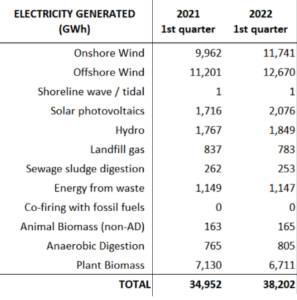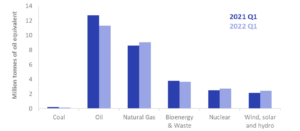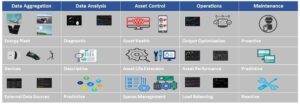Creating Standards for Digital Twin Interoperability
The Digital Twin market is expected to be worth $48 billion by the year 2026. Interoperability will be crucial to the adoption and acceleration of Digital Twin technology. This is particularly with regard to processing heterogeneous information from heterogeneous systems.
The Challenge of Interoperability
Digital twins require the interplay of components for data collection, processing, communication, modelling, analytics, simulation and control. There needs to be an interchange of data between the mechanical, digital and human components of a process. To do so, standards will need to be created to allow this.
Information interoperability means that everyone in the process - whether that be in engineering, manufacturing, supply chain, service and technical support - is able to mutually exchange and utilise data.
As well as data silos and data quality issues existing within individual organisations, there is also the issue of interoperability between different organisations. This presents a challenge to interoperability, especially when organisations take a closed system’s approach. There is a growing acknowledgement that Digital Twins require an ecosystem of different organisations to collaborate to realise the full potential of the technology.
Creating standards for interoperability
Attempts have been made to create standards for Digital Twin interoperability. The purpose of interoperability frameworks is to help propose a change of thinking within the industry. While many companies offer their own proprietary and isolated digital twin solutions, industry disruptive use cases demand connectivity of twins and embedded systems.
In 2021, the Digital Twin Consortium (DTC) released a Digital Twin System Interoperability Framework. The DTC has a vision of an ecosystem of high-value multi-vendor services that seamlessly “plug into” a multi-dimensional, interoperable system of systems. The goal is for this to be as simple as plugging in say a USB device.
Specifically in the United Kingdom, is the Centre for Digital Built Britain (CDBB), a partnership between the University of Cambridge and the Department for Business, Energy and Industrial Strategy.
The CDBB runs the National Digital Twin Programme (NDTP). The purpose of the NDTP is to enable a National Digital Twin which would be an ecosystem of digital twins for the built environment that can interconnect through secure data sharing.
Part of this is the Information Management Framework (IMF) which aims to deliver secure, resilient interoperability of data in line with security, legal, commercial, privacy and other relevant concerns.
Overall, the availability of data remains the largest challenge to the adoption of digital twin technology. However, organisations are progressively recognising the value of connected Digital Twins, multi-vendor collaboration and the need for shared standards around data interoperability. Moving forward, efforts must be maintained to adopt said standards to arrive at solutions that will yield real business and industry value. To do so, an open systems approach should be favoured to ensure a client’s Digital Twin fully meets a client's business needs.
One City Global’s Approach
One City Global has an open systems approach meaning that we will not tie you into a proprietary digital twin platform. Instead we will provide a solution “tailor made” to your business needs. Further, to achieve interoperability across your systems and vendors, we ensure:
data is not silod across systems;
solutions flexibly define transformation rules;
vendors with multiple cloud platforms and tools receive information in a common standardised digital twin format; and crucially,
sufficient safeguards are in place against security threats during data transfer.
For more information
email us at enquiries@onecityglobal.com
Follow us on LinkedIn.
Visit us at www.onecityglobal.com
About Us
OCG has market leading competences within the internet of things, smart data, artificial intelligence, simulation and digital twinning technologies. We drive digital transformation by integrating processes and technologies and end-point to cloud integration connecting products, controls, software and services. We enable solutions for all phases of a Digital Twin from data aggregation and visualisation through to a full Multi-Dimensional Digital Twin.
The UK power generation mix moves increasingly toward renewable energy
Power generation from low carbon sources secured more than 60% of the UK's total energy mix in the first quarter of 2022.

Government data shows renewable electricity generation totalled 38.2TWh in the first quarter of the year, up 9.3% compared to the same period in 2021. Second only to the first quarter of 2020 when the UK experienced exceptionally high wind speeds. Renewables’ share of electricity generation was 45.5 per cent, again, the second highest compared to the record in Quarter 1, 2020.
Most of the new capacity was in offshore wind which saw two large new sites coming online in Quarter 1 2022. This is the largest increase in capacity since the first quarter of 2018.Solar increased its generation by 21% in the first three months of the year. The analysis estimates that low carbon electricity generation represented a 60.4% share of the UK’s total generation.
Gas generation fell by 14% to 28TWh between the first quarter of 2021 and 2022.

Renewable energy power production depends on environmental factors such as temperature, wind speed, light intensity etc. These factors affect the performance of energy conversion in renewable energy sources.
The emerging technology in this sector is the Internet of Things (IoT). The network of intelligence that bridges various devices and systems together by means of a cloud portal.
The Energy sector is now undergoing a data transformation as IoT brings about changes from generation to transmission to distribution. IoT helps in analysing the demand and in scheduling load in order to reduce cost. IoT increases the efficiency and reliability of renewable energy assets.
Closed-loop digital twins use, in near-real time, live performance data pushed from local IoT devices fed into the digital twin of the system. The ability to access energy information and effectively analyse real-time data to extract key indicators is a crucial factor for successful energy management.

One City Global are specialists in the provision of Digital Twins and digital twin technologies. A digital twin is a perfect digital replica of a physical asset. It enables increased collaboration, data analytics and simulated conditions almost instantaneously.
As the digital twin trend accelerates in the coming years, more organisations will explore opportunities using such technologies to optimise processes, make data-driven decision in real time and design new products, services and business models.
For more information
email us at enquiries@onecityglobal.com
Follow us on LinkedIn.
Visit us at www.onecityglobal.com
About Us
OCG has market leading competences within the internet of things, smart data, artificial intelligence, simulation and digital twinning technologies.We drive digital transformation by integrating processes and technologies and end-point to cloud integration connecting products, controls, software and services. We enable solutions for all phases of a Digital Twin from data aggregation and visualisation through to a full Multi-Dimensional Digital Twin.
Webinar with Gardiner and Theobald: Achieving Net Zero and Healthy Buildings with Digital Twinning
We welcome you to watch our Webinar with Gardiner and Theobald on 'Achieving Net Zero and Healthy Buildings with Digital Twinning'.
Throughout this presentation, our team set out:
- the business case for using Digital Twin technology to achieve net-zero and healthy buildings;
- the journey an organisation will go through to a Digital Twin;
- potential use cases for digital twins and data aggregation for the built environment;
- why existing systems are not sufficient for achieving your business needs; and
- why One City Global is the ideal company to help you deliver healthier, net-zero buildings.
We are committed to creating a mechanism for your organisation to easily aggregate data into a holistic view of your building and to visualise that data in meaningful ways that supports management needs.
At the start of the process we can show you how you can benefit from aggregation, realisation and proper visualisation of data.
Moving forward, we will bring you on a Business Transformation journey towards a Digital Twin, providing real time visualisation and management of your built environment.
We aim to shape and accelerate the evolution to a digital planet. Leveraging our expertise in the creation of Digital Twin technology, we provide our customers with the insight and ability to make data driven decisions, and in taking action to achieve their goals.
For more information, contact us today.
Introducing: One City Global
We are a Business Transformation Company with the aim of creating sustainable Business value through better utilisation and visualisation of data. Our mission is to be a leading enabler of change in the evolution to a digital planet
We work at the intersection of business and technology, leveraging our unique tools and extensive experience to help our clients increase performance and create value through Digital Twins.
Our unique set of tools and methodology differentiates us from the more traditional approach to data analysis and gives us the ability to deliver real business value.
One City Global has Digital Twin technology at the core of its technical offering
By Digital Twin, we mean a virtual representation of a physical asset, system or process designed to detect, prevent, predict, and optimise through real time analytics to deliver business value.
We enable our clients to deliver Digital Transformation that matters, support their journey from concept through to full deployment, integration and operation of a Digital Twin
To benefit from tomorrow’s innovations and maximise value in an era of constant change, companies need to adopt new strategies for IT, digital & data transformation.
We add real sustainable value to future-facing clients by helping them realise the potential of digital solutions, because when you change the way you look at things, the things you look at change.
